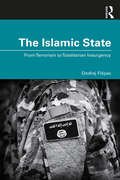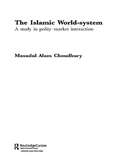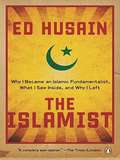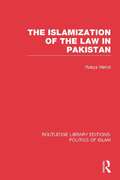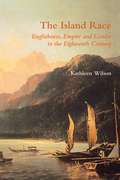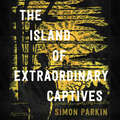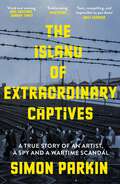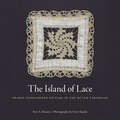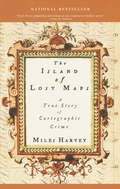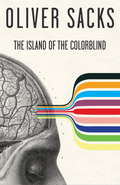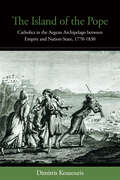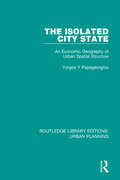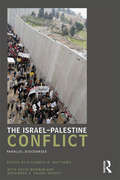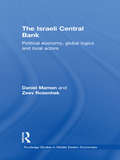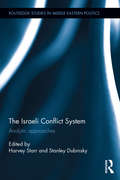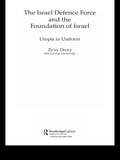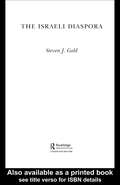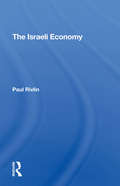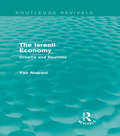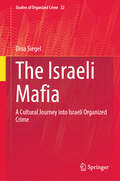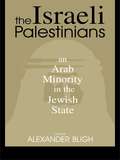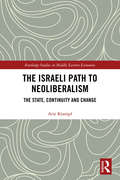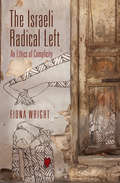- Table View
- List View
The Islamic State: From Terrorism to Totalitarian Insurgency
by Ondrej FilipecThe Islamic State analyzes the transformation of ISIS (Daesh) from an underground insurgent organization to a quasi-state entity. It traces the genesis and evolution of what may be interpreted as a revolutionary war aimed at the creation and expansion of a new society and world order in the ruins of Syria and Iraq. This book: Analyzes the regime’s totalitarian features including structure, ideology, propaganda, and violence; Examines its ideology with a focus on radical Islamism and Salafi-jihadism; Studies the economics behind its continued existence; and Explores the attitude of key state and non-state actors, especially Russia, USA, and the Global Coalition, towards Daesh. An indispensable guide to the study of modern terrorism, this book will be of great interest to students and researchers of Middle East studies, terrorism, with a focus on ISIS, military and strategic studies, politics and international relations, as well as general readers.
The Islamic World-System: A Study in Polity-Market Interaction (Routledgecurzon Advances In Middle East And Islamic Studies)
by Masudul Alam ChoudhuryThis highly original book presents an alternative vision of globalization and explores the epistemology, derived from the Qur'an and the Prophetic guidance Sunnah, that underpins the systemic unity at the heart of the Islamic concept of world-system. Choudhury's investigation reveals the ethical foundations that influence the development of law, markets and social contract in Islamic societies. He then applies his methodology to issues and problems such as property rights, money, political economy, technology diffusion, microenterprise development and asset evaluation.
The Islamist
by Ed HusainEd Husain's The Islamist is the shocking inside story of British Islamic fundamentalism, told by a former radical. 'When I was sixteen I became an Islamic fundamentalist. Five years later, after much emotional turmoil, I rejected fundamentalist teachings and returned to normal life and my family. As I recovered my faith and mind, I tried to put my experiences behind me, but as the events of 7/7 unfolded it became clear to me that Islamist groups pose a threat to this country that we - Muslims and non-Muslims alike - do not yet understand. ' 'Why are young British Muslims becoming extremists? What are the risks of another home-grown terrorist attack on British soil? By describing my experiences inside these groups and the reasons I joined them, I hope to explain the appeal of extremist thought, how fanatics penetrate Muslim communities and the truth behind their agenda of subverting the West and moderate Islam. Writing candidly about life after extremism, I illustrate the depth of the problem that now grips Muslim hearts and minds and lay bare what politicians and Muslim 'community leaders' do not want you to know. ' 'A complete eye-opener' The Times 'Captivating, and terrifyingly honest' Observer 'Persuasive and stimulating' Martin Amis 'Read this articulate and impassioned book' Simon Jenkins, Sunday Times Ed Husain was an Islamist radical for five years in his late teens and early twenties. Having rejected extremism he travelled widely in the Middle East and worked for the British Council in Syria and Saudi Arabia. Husain received wide and various acclaim for The Islamist, which was shortlisted for the Orwell Prize for political writing and the PEN/Ackerley Prize for literary autobiography, amongst others.
The Islamization of the Law in Pakistan (Routledge Library Editions: Politics of Islam)
by Rubya MehdiThis is a detailed, critical study of the reforms which have been made in recent years to the law in the State of Pakistan with the ostensible objective of bringing it into accord with the requirements of Islam. Special emphasis is given to the period from 1977 when General Zia ul Haque adopted a period of Islamization. This is a field of investigation of considerable importance both for the advancement of legal and political theory and for practical purposes, especially as regards human rights. The author, trained both in Pakistan law and the concepts and practice of Islamic law, has been able to advance significantly our understanding of the doctrinal developments documented in this book. First published in 1994.
The Island Chumash: Behavioral Ecology of a Maritime Society
by Douglas J. KennettAn archaeological and climatological analysis of how environmental change affected the evolution of social complexity among Chumash hunter-gatherers of southern California.
The Island Race: Englishness, Empire and Gender in the Eighteenth Century
by Kathleen WilsonRooted in a period of vigorous exploration and colonialism, The Island Race: Englishness, empire and gender in the eighteenth century is an innovative study of the issues of nation, gender and identity. Wilson bases her analysis on a wide range of case studies drawn both from Britain and across the Atlantic and Pacific worlds. Creating a colourful and original colonial landscape, she considers topics such as: * sodomy* theatre* masculinity* the symbolism of Britannia * the role of women in war. Wilson shows the far-reaching implications that colonial power and expansion had upon the English people's sense of self, and argues that the vaunted singularity of English culture was in fact constituted by the bodies, practices and exchanges of peoples across the globe. Theoretically rigorous and highly readable, The Island Race will become a seminal text for understanding the pressing issues that it confronts.
The Island of Extraordinary Captives: A True Story of an Artist, a Spy and a Wartime Scandal
by Simon ParkinA gripping untold war story: using exclusive new archive material, letters and diaries, this is the story of the prisoners of war in internment camps during the Second World War.The police came for Peter Fleischmann in the early hours. It reminded the teenager of the Gestapo's moonlit roundups he had narrowly avoided at home in Berlin. Now, having endured a perilous journey to reach England - hiding from the rampaging Nazi thugs at his orphanage, boarding a Kindertransport to safety - here the aspiring artist was, on a ship bound for the Isle of Man, suspected of being a Nazi spy. What had gone wrong?In May 1940, faced with a country gripped by paranoia, Prime Minister Winston Churchill ordered the internment of all German and Austrian citizens living in Britain. Most, like Peter, were refugees who had come to the country to escape Nazi oppression. They were now imprisoned by the very country in which they had staked their trust. Painstakingly researched from dozens of unpublished first-hand accounts and previously classified documents, The Island of Extraordinary Captives tells, for the first time, the story of history's most astonishing internment camp and of how a group of world-renown artists, musicians and academics came to be seen as 'enemy aliens'. The Island of Extraordinary Captives is the story of a battle between fear and compassion at a time of national crisis. It reveals how Britain's treatment of refugees during the Second World War led to one of the nation's most shameful missteps, and how hope and creativity can flourish in even the most challenging circumstances.(P) 2022 Hodder & Stoughton Limited
The Island of Extraordinary Captives: A True Story of an Artist, a Spy and a Wartime Scandal
by Simon Parkin*An OBSERVER, TABLET, NEW STATESMAN and GUARDIAN SATURDAY MAGAZINE "Books of 2022" pick *The police came for Peter Fleischmann in the early hours. It reminded the teenager of the Gestapo's moonlit roundups he had narrowly avoided at home in Berlin. Now, having endured a perilous journey to reach England - hiding from the rampaging Nazi thugs at his orphanage, boarding a Kindertransport to safety - here the aspiring artist was, on a ship bound for the Isle of Man, suspected of being a Nazi spy. What had gone wrong?In May 1940, faced with a country gripped by paranoia, Prime Minister Winston Churchill ordered the internment of all German and Austrian citizens living in Britain. Most, like Peter, were refugees who had come to the country to escape Nazi oppression. They were now imprisoned by the very country in which they had staked their trust. Painstakingly researched from dozens of unpublished first-hand accounts and previously classified documents, The Island of Extraordinary Captives tells, for the first time, the story of history's most astonishing internment camp and of how a group of world-renown artists, musicians and academics came to be seen as 'enemy aliens'. The Island of Extraordinary Captives is the story of a battle between fear and compassion at a time of national crisis. It reveals how Britain's treatment of refugees during the Second World War led to one of the nation's most shameful missteps, and how hope and creativity can flourish in even the most challenging circumstances.
The Island of Lace: Drawn Threadwork on Saba in the Dutch Caribbean
by Eric A. EliasonNicknamed the “Island of Lace,” the Caribbean island of Saba is the smallest special municipality in the Netherlands. Folklorist Eric A. Eliason, at the behest of the president of the Saba Lace Ladies’ Foundation and Saba’s director of tourism, traveled to the island with the intent to document the history and patterns of Saba lace. Born out of his research, The Island of Lace tells the story of lacework’s central role in Saba’s culture, economy, and history. Accompanied by over three hundred of Scott Squire’s intimate photographs of lace workers and their extraordinary island society, this volume brings together in one place an as-complete-as-possible catalog of the rich designs worked by Saban women. For 130 years, the practice of drawn threadwork—also known as Spanish work, fancy work, lacework, or Saba lace—has shaped the lives of Saban women. And yet, as the younger generation moves away from the island, it still survives. Sabans use drawn threadwork to symbolize the uniqueness of their island and express the ingenuity, diligence, bold inventiveness, pride in workmanship, love of beauty, and respect for tradition that define the Saban spirit. Along with recording and honoring the creative legacy of generations of Saban women, this book serves as a guide to folk-art lace patterns from Saba so that practitioners can reference and perhaps re-create this work. The Island of Lace is the most comprehensive volume on this singular tradition ever published.
The Island of Lost Maps: A True Story of Cartographic Crime
by Miles HarveyThe Island of Lost Maps tells the story of a curious crime spree: the theft of scores of valuable centuries-old maps from some of the most prominent research libraries in the United States and Canada. The perpetrator was Gilbert Joseph Bland, Jr., an enigmatic antiques dealer from South Florida, whose cross-country slash-and-dash operation had gone virtually undetected until he was caught in 1995 and was unmasked as the most prolific American map thief in history. As Miles Harvey unravels the mystery of Bland's life, he maps out the world of cartography and cartographic crime, weaving together a fascinating story of exploration, craftsmanship, villainy, and the lure of the unknown.
The Island of the Colorblind
by Oliver SacksOliver Sacks has always been fascinated by islands--their remoteness, their mystery, above all the unique forms of life they harbor. For him, islands conjure up equally the romance of Melville and Stevenson, the adventure of Magellan and Cook, and the scientific wonder of Darwin and Wallace. Drawn to the tiny Pacific atoll of Pingelap by intriguing reports of an isolated community of islanders born totally color-blind, Sacks finds himself setting up a clinic in a one-room island dispensary, where he listens to these achromatopic islanders describe their colorless world in rich terms of pattern and tone, luminance and shadow. And on Guam, where he goes to investigate the puzzling neurodegenerative paralysis endemic there for a century, he becomes, for a brief time, an island neurologist, making house calls with his colleague John Steele, amid crowing cockerels, cycad jungles, and the remains of a colonial culture. The islands reawaken Sacks' lifelong passion for botany--in particular, for the primitive cycad trees, whose existence dates back to the Paleozoic--and the cycads are the starting point for an intensely personal reflection on the meaning of islands, the dissemination of species, the genesis of disease, and the nature of deep geologic time. Out of an unexpected journey, Sacks has woven an unforgettable narrative which immerses us in the romance of island life, and shares his own compelling vision of the complexities of being human.
The Island of the Colorblind
by Oliver SacksOliver Sacks has always been fascinated by islands--their remoteness, their mystery, above all the unique forms of life they harbor. For him, islands conjure up equally the romance of Melville and Stevenson, the adventure of Magellan and Cook, and the scientific wonder of Darwin and Wallace.Drawn to the tiny Pacific atoll of Pingelap by intriguing reports of an isolated community of islanders born totally color-blind, Sacks finds himself setting up a clinic in a one-room island dispensary, where he listens to these achromatopic islanders describe their colorless world in rich terms of pattern and tone, luminance and shadow. And on Guam, where he goes to investigate the puzzling neurodegenerative paralysis endemic there for a century, he becomes, for a brief time, an island neurologist, making house calls with his colleague John Steele, amid crowing cockerels, cycad jungles, and the remains of a colonial culture.The islands reawaken Sacks's lifelong passion for botany--in particular, for the primitive cycad trees, whose existence dates back to the Paleozoic--and the cycads are the starting point for an intensely personal reflection on the meaning of islands, the dissemination of species, the genesis of disease, and the nature of deep geologic time. Out of an unexpected journey, Sacks has woven an unforgettable narrative which immerses us in the romance of island life, and shares his own compelling vision of the complexities of being human.From the Hardcover edition.
The Island of the Pope: Catholics in the Aegean Archipelago between Empire and Nation-State, 1770-1830
by Dimitris KousourisFor the Aegean island of Syros, the Greek Revolution (1821-1832) marked a significant turning point. Known as “the island of the Pope”, due to its Catholic majority, Syros transformed into a major commercial hub, seemingly triggering the withdrawal of its indigenous Latin community. Juxtaposing the view from the Archipelago with that from Istanbul, the Peloponnese, Rome, Paris and Vienna, this volume revisits the island’s history. From early encounters between native inhabitants and groups from across the Ottoman Levant, to how the Latin community navigated conflict and change during the Greek War of Independence, this book offers new insights into the political, cultural and social history of the region.
The Isolated City State: An Economic Geography of Urban Spatial Structure (Routledge Library Editions: Urban Planning #18)
by Yorgos PapageorgiouOriginally published in 1990, The Isolated City State asks the questions, why have the world’s major cities experienced explosive growth? Why does the socio-economic status in North America roughly increase with distance from the city centre, while the socio-economic status in South America roughly decreases? What are the reasons behind the sudden decline of some large, central cities? Will recovery if it happens be equally rapid? Generally, to understand the phenomenon, simplifications are made which make it impossible to understand other phenomena. This major study synthesises a vast amount of theorising and research to provide answers to the major questions of urban geography.
The Israel-Palestine Conflict: Parallel Discourses (UCLA Center for Middle East Development (CMED) series)
by Elizabeth G. MatthewsThe conflict between the Israelis and the Palestinians is considered intractable by many, and is frequently characterised by the violence between the two sides. In attempts at peace, the starting point for negotiations is a cessation of violence; beneath this, however, lies a plethora of other issues to be addressed. This unique text brings together Israeli and Palestinian viewpoints on a number of key issues and topics, making clear the points of agreement as well as the views that divide. The chapters deal first with three issues that require compromise and resolution for a peace treaty to be realized - water, refugees, and borders, territory and settlements – and then with three important concepts that can either impede or promote peace: democracy, human rights, and peace culture and education. Thus, the book provides an invaluable opportunity to understand, at least in part, the divergent and even convergent interests and understandings of Israelis and Palestinians on issues and concepts important to the peace process. As such, it will be a valuable resource for courses on conflict resolution, the Middle East peace process, and political science.
The Israeli Central Bank: Political Economy, Global Logics and Local Actors (Routledge Studies in Middle Eastern Economies)
by Daniel Maman Zeev RosenhekThis book examines the local and global political and institutional processes that have led to the strengthening of the Israeli central bank within the context of the now predominant neoliberal regime. Using Israel as a case study to identify broader patterns around the world, the authors examine the strengthening of central banks as a key dimension of the institutionalisation of the global regime. Drawing on an in-depth analysis of the political economy of the Israeli central bank since the mid-1980s, the authors show how the Bank of Israel mobilized global logics in order to strengthen its position vis-à-vis competing actors, especially the Ministry of Finance, and to promote the institutionalisation of the neoliberal regime. Employing a conflict-centered theoretical perspective, the authors elucidate the character of this institutional transformation and the mechanisms that were involved. Chapters examine the different phases of the process of central bank strengthening, focusing on the actors involved, the interactions between them, and the political strategies they employed, and analyse the consequences of the process for the shift in macro-economic management and in the mode of state involvement in the economy. Addressing the political and institutional processes that have led to the fundamental transformation of Israeli political economy, this book is a valuable addition to the existing literature on the Israeli banking system, political economy and globalisation.
The Israeli Conflict System: Analytic Approaches (Routledge Studies in Middle Eastern Politics)
by Stanley Dubinsky Harvey StarrThe Middle East conflict system is perhaps the world’s most important and intractable problem area, whose developments carry global consequences. An effective investigation of the context and change in the region calls for a melding of academic approaches, methods and findings with policy oriented needs. The Israeli Conflict System brings together leading conflict scholars primarily from political science, applying a range of advanced, rigorous analytic and data-gathering techniques to address this single empirical domain—the contemporary Israeli Conflict System. Recognising the causal complexity of this conflict system, the volume’s central theme is that the system’s current conditions are best understood in their broader temporal/historic, cultural/linguistic, and spatial/geographic contexts. Through the lens of economic, geographic, historical, linguistic, and political analyses, and the application of data analysis, experiments, simulations, and models of rational choice, this volume shows how diverse disciplinary perspectives and methodologies can complement each other effectively. In this way, its chapters provide a model for the integration of factors and contexts necessary for understanding contemporary world politics, and a sampling of theories, approaches, and methods that are applicable, useful, or valid under different conditions. This book offers a cutting-edge resource for scholars and students of Political Science, International Relations, Conflict Studies and Middle East Studies.
The Israeli Defence Forces and the Foundation of Israel: Utopia in Uniform
by Ze'ev DroryThis book discusses the contribution of the Israel Defence Forces (IDF) to the building of the social and educational foundations of the country, and its role in the area of immigrant absorption and settlement during the first years of the Israeli State. The author examines how under the guidance of David Ben-Gurion Israel was able to utilize the values of military organization to combat severe, economic, and social difficulties, and build a civil society to underpin the new state.
The Israeli Diaspora (Global Diasporas)
by Steven J. GoldIn this fascinating study, based on extensive field work in the major Israeli communities of New York, Los Angeles, London, Paris and Sydney, Steven J. Gold looks at their reasons for leaving - existing links abroad, political and economic dissatisfaction at home and, in the case of the Sephardim or Israelis of non-European origin, often a feeling of being treated as second-class citizens - the tensions, compromises and satisfactions involved in their relations with Israelis who have not left and with the Jewish and non-Jewish communities in the countries in which they settle. In a final chapter, he talks to those who, after years as emigrants, have made the decision to return. The end result is a major contribution to the study not just of the Israeli diaspora but also to our wider understanding of migration and transnational identity.Winner of the 2003 Thomas and Znaniecki Award (American Sociological Association International Migration Section)
The Israeli Economy
by Paul RivlinThis comprehensive study examines the sources of growth and stagnation in the Israeli economy, focusing on the development of the industrial and agricultural sectors, changes in the supply of labour, the nature of capital markets and the expansion of the defence budget. The author analyzes policies that have been successful in lowering inflation an
The Israeli Economy: Dreams and Realities (Routledge Revivals)
by Yair AharoniFirst published in 1991, during a significant stagnation in the Israeli economy, this title discusses the causes of the economic downturn, and assesses the country’s prospects. Throughout, Aharoni measures the economic problems Israel has endured against the social and economic successes it has been able to achieve. He highlights the incongruities of the aspirations of Israel’s founders and supporters and the reality, as well as the interplay of economic and political forces that have shaped this. With a detailed introduction to the ideology and development of the state of Israel, and a history of the Israeli economy and its institutional structure, this title will be of significant value to any student studying the economic history of Israel and the Middle East.
The Israeli Mafia: A Cultural Journey into Israeli Organized Crime (Studies of Organized Crime #22)
by Dina SiegelThis book delves into a previously unexplored realm within criminological scholarship: Israeli organized crime. Breaking the silence that has shrouded this topic, this book undertakes a comprehensive examination of the intricate socio-economic and cultural landscapes that have shaped the criminal operations of a diverse array of Jewish and non-Jewish criminal entities, spanning from the inception of the Israeli state to the present day in 2024. Drawing upon meticulous ethnographic fieldwork conducted in Israel between 2020 and 2024, alongside rigorous media analysis, interviews conducted both domestically and internationally, and a wealth of visual material captured by the author during fieldwork, this study offers unparalleled insights into the dynamics of Israel's underworld. It examines the multifaceted activities of various criminal organizations, including but not limited to drug and human trafficking, protection rackets, gambling enterprises, and contract killings. Moreover, this book critically examines the responses of authorities and law enforcement agencies to the escalating influence of organized crime amidst the backdrop of major socio-political upheavals in Israel, ranging from wars and waves of immigration to terrorist attacks. By contextualizing these criminal phenomena within broader historical and contemporary narratives, this work not only fills a significant gap in scholarly discourse but also provides a nuanced understanding of the intersections between crime, society, and governance in the Israeli context.
The Israeli Palestinians: An Arab Minority in the Jewish State (Israeli History, Politics and Society)
by Alexander BlighOne of the most crucial issues to affect national policy in the state of Israel is that of relations between its Jewish and Arab citizens. This edited collection offers a comprehensive analysis of the most significant factors to have contributed to current conditions.
The Israeli Path to Neoliberalism: The State, Continuity and Change (Routledge Studies in Middle Eastern Economies)
by Arie KrampfIn recent years, Israel has deeply and quickly transformed itself from a self-perceived social-democratic regime into a privatized and liberalized "Start-Up Nation" and a highly divided society. This transition to neoliberalism has been coupled with the adoption of a hawkish and isolationist foreign policy. How can such a deep change be explained? How can a state presumably founded on the basis of socialist ideas, turn within a few decades into a country characterized by a level of inequality comparable to that of the United States? By presenting a comprehensive and detailed analysis of the evolution of the Israeli economy from the 1930s to the 1990s, The Israeli Path to Neoliberalism seeks to explain the Israeli path to neoliberalism. It debunks the ‘from-socialism-to-liberalization’ narrative, arguing that the evolution of Israeli capitalism cannot be described or explained as a simple transplantation of imported economic models from advanced liberal democracies. Rather, it asserts that the Israeli variant of capitalism is the product of the encounter between imported Western institutional models and policy ideas, on the one hand, and domestic economic, social and security policy problems on the other. This mechanism of change enables us to understand the factors that gave rise to Israel’s unique combination of liberalization and strong national sentiments. Providing an in-depth analysis of Israel’s transformation to neoliberalism, the book is a valuable resource for those studying the economic history of Israel, or the political economy of late-developing countries.
The Israeli Radical Left: An Ethics of Complicity (The Ethnography of Political Violence)
by Fiona WrightIn The Israeli Radical Left, Fiona Wright traces the dramatic as well as the mundane paths taken by radical Jewish Israeli leftwing activists, whose critique of the Israeli state has left them uneasily navigating an increasingly polarized public atmosphere. This activism is manifested in direct action solidarity movements, the critical stances of some Israeli human rights and humanitarian NGOs, and less well-known initiatives that promote social justice within Jewish Israel as a means of undermining the overwhelming support for militarism and nationalism that characterizes Israeli domestic politics. In chronicling these attempts at solidarity with those most injured by Israeli policy, Wright reveals dissent to be a fraught negotiation of activists' own citizenship in which they feel simultaneously repulsed and responsible.Based on eighteen months of fieldwork, The Israeli Radical Left provides a nuanced account of various kinds of Jewish Israeli antioccupation and antiracist activism as both spaces of subversion and articulations of complicity. Wright does not level complicity as an accusation, but rather recasts the concept as an analysis of the impurity of ethical and political relations and the often uncomfortable ways in which this makes itself felt during moments of attempted solidarity. She imparts how activists persistently underline their own feelings of complicity and the impossibility of reconciling their principles with the realities of their everyday lives, despite the fact that the activism in which they engage specifically aims to challenge Jewish Israeli citizens' participation in state violence. The first full ethnographic account of the Israeli radical left, Wright's book explores the ethics and politics of Jewish Israeli activists who challenge the violence perpetrated by their state and in their name.
